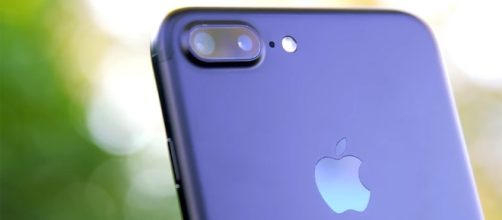Apple's reign as the world's number one smartphone vendor was short lived. After overtaking Samsung in the fourth quarter of 2016, selling more than 78 million iPhones and getting back to the top for the first time in two years, Apple has descended into its default position since 2011 – number two. According to IDC's latest data, Apple sold 51,6 million iPhones in the first quarter of 2017, which translates into a 14,9% market share. That's slightly below last year's 15,4% share, even though the company actually sold more iPhones this time. It's just that the market has expanded and Chinese brands were the ones benefitting from that.
Samsung is back
Part of the reason why Apple was able to pull a surprise in the holidays quarter was the full-fledged crisis mode in Samsung's backyard. The South Korean company had a successful launch of the much-anticipated Galaxy Note 7 in August but was soon forced into a massive recall when faulty batteries started catching fire. The replacement models were no better, and so Samsung had to permanently cancel the production of the phablet. It was a PR nightmare and a huge financial hurdle. To put the scandal to rest, the company decided to offer heavy discounts on last year's Galaxy S7 and S7 edge mobile phones, flushing out the remaining stock in anticipation of the newer models. That allowed the brand to sell more phones in the first quarter of 2017 than in the last quarter of last year, which is atypical.
Samsung shuffled 79,2 million phones in the first three months of the year, securing a 22,8% market share – less than last year's 23,8% and reflective of a completely flat quarter, but still good news after the Note 7 fiasco.
IDC notes that the J-Series and A-Series mobile phones "drove significant volumes", thanks to the affordable price points. The Galaxy S8 and S8+ were released after the end of the quarter, so its sales are not yet reflected in this report. The firm expects a good bump in numbers, given how "promising" the initial response is.
Apple preps for anniversary edition of the iPhone
Apple sold 25 million fewer phones than Samsung this quarter, which was to be expected. The company had previously beaten its biggest rival by very little – 78,3 million iPhones against 77,5 million Samsung phones.
IDC expects an anniversary edition of the iPhone in the Fall, as rumors have it, and that should make for a very interesting final stretch of the year for the two biggest vendors.
Smartphone market back in shape
Smartphone vendors shipped a total of 347,4 million smartphones in the first quarter of 2017, which is a better-than-expected performance for the market. Ryan Reith, who oversees IDC's Worldwide Quarterly Mobile Device Trackers, says the number are encouraging. "The first quarter smartphone results further prove that the smartphone industry is not dead and that growth still exists," he noted, as the market grew 4,3%. IDC expects cheaper models to drive the market, but flagship phones, such as Huawei's P10 and Samsung's S8, demonstrate that "innovation is still possible."

